The skyline of modern cities is defined by towering structures that showcase engineering marvels and architectural ingenuity. These skyscrapers are not just buildings; they represent technological progress, cultural significance, and economic ambition. From the Middle East to Asia and North America, these are the top 10 tallest buildings in the world as of today
Table of Contents
1. Burj Khalifa – Dubai, United Arab Emirates

- Height: 828 meters (2,717 feet)
- Floors: 163 (+2 below ground)
- Year Completed: 2010
- Significance: The Burj Khalifa has reigned as the tallest building in the world since 2009. Its iconic spire dominates the Dubai skyline, symbolizing the city’s rapid development. The building houses luxury residences, corporate offices, and the Armani Hotel, making it a mixed-use masterpiece.
2. Merdeka 118 – Kuala Lumpur, Malaysia
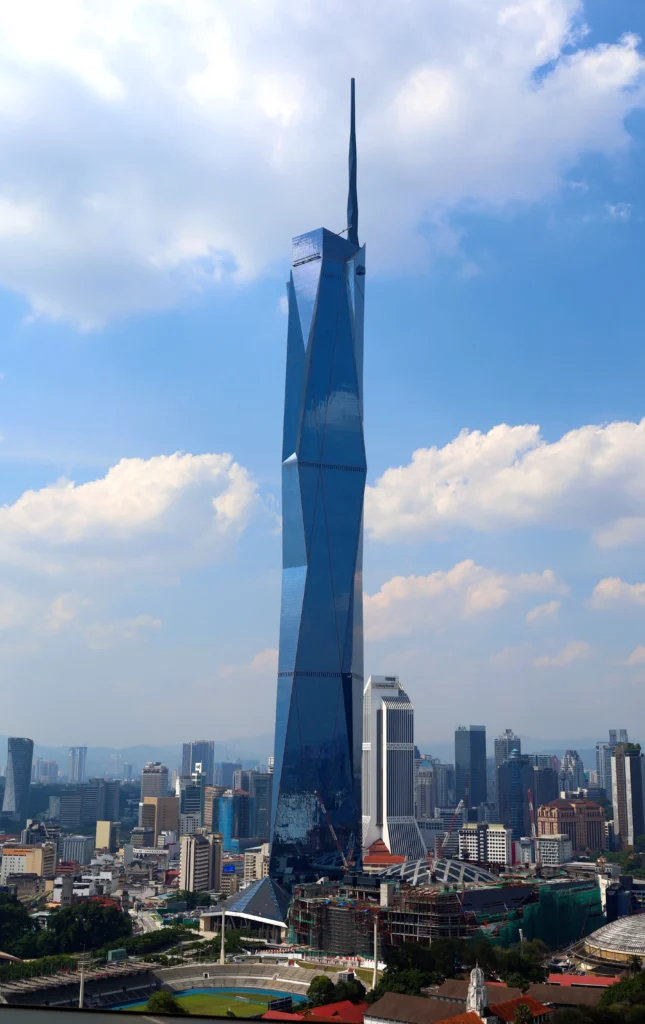
- Height: 678.9 meters (2,227 feet)
- Floors: 118 (+5 below ground)
- Year Completed: 2024
- Significance: Merdeka 118 is the tallest building in Southeast Asia and the second tallest in the world. It serves as a symbol of Malaysia’s growth and ambition. The design features intricate geometric patterns inspired by Malaysian culture, combining functionality with cultural pride.
3. Shanghai Tower – Shanghai, China
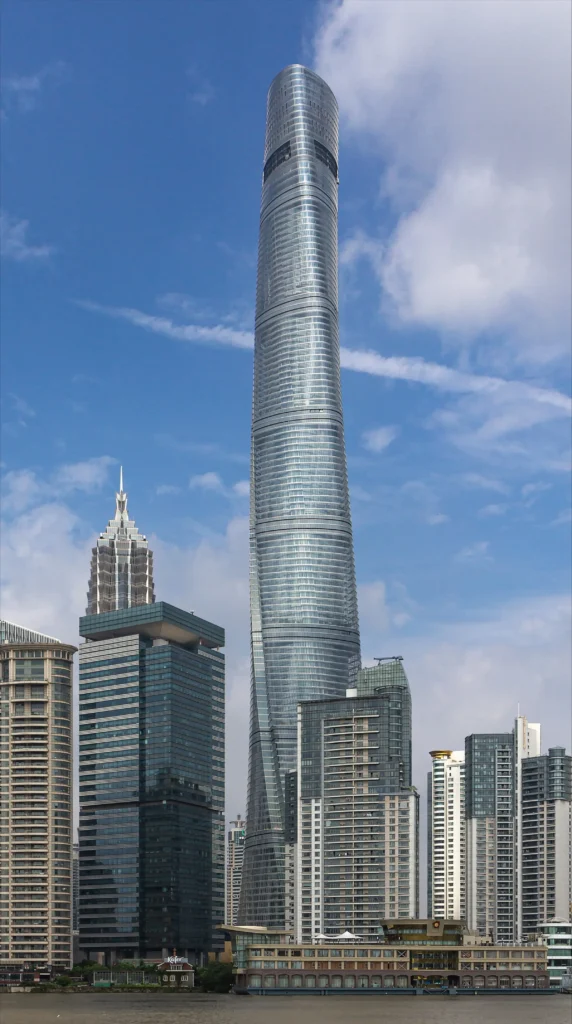
- Height: 632 meters (2,073 feet)
- Floors: 128 (+5 below ground)
- Year Completed: 2015
- Significance: The Shanghai Tower is the tallest building in China and East Asia. It features the world’s highest luxury hotel and is celebrated for its sustainable design. Its twisted structure reduces wind loads, making it an engineering triumph.
4. Abraj Al-Bait Clock Tower – Mecca, Saudi Arabia
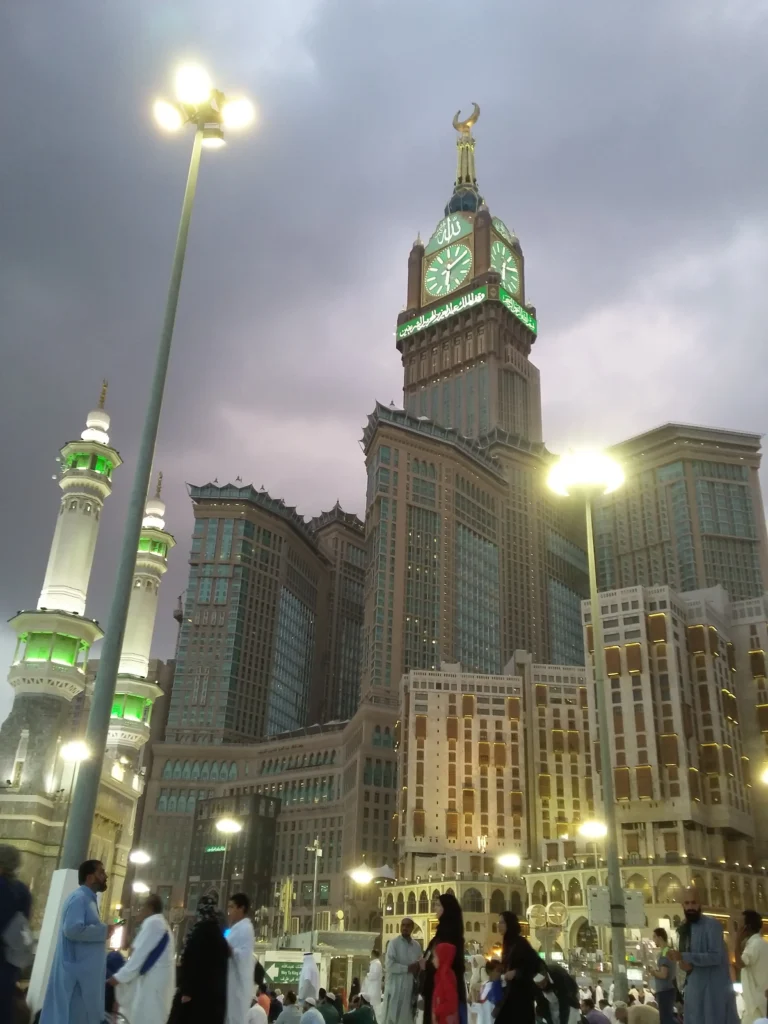
- Height: 601 meters (1,972 feet)
- Floors: 120 (+3 below ground)
- Year Completed: 2012
- Significance: Overlooking the Grand Mosque in Mecca, this structure is the tallest clock tower in the world and hosts the highest museum. It is a central element of the Abraj Al-Bait complex, offering accommodations for pilgrims and cultural exhibits.
5. Ping An International Finance Centre – Shenzhen, China
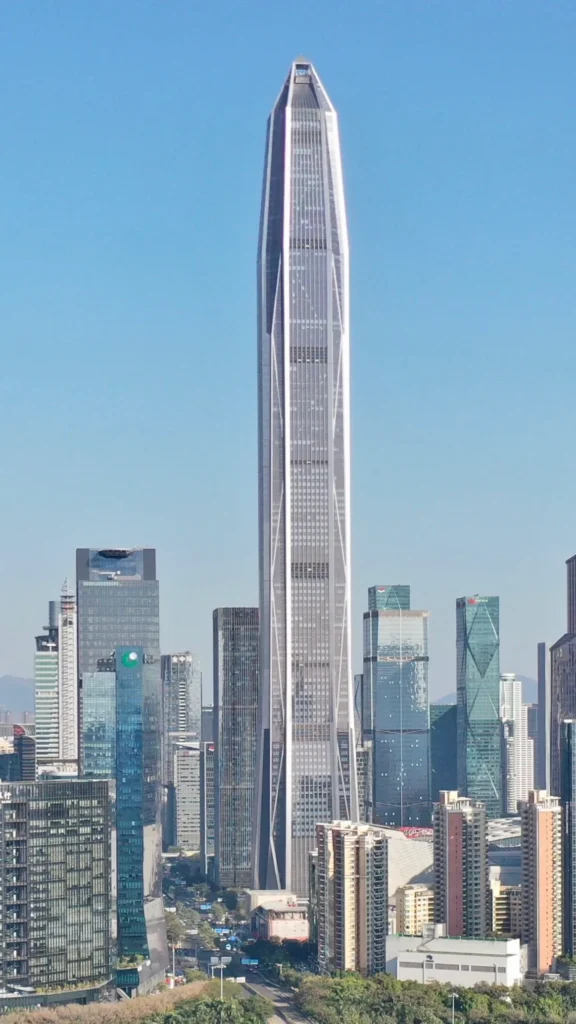
- Height: 599.1 meters (1,966 feet)
- Floors: 115 (+5 below ground)
- Year Completed: 2017
- Significance: Located in the bustling tech hub of Shenzhen, this building is a hub for business and finance. Its sleek design and efficient use of space make it a landmark of modern urban planning.
6. Lotte World Tower – Seoul, South Korea
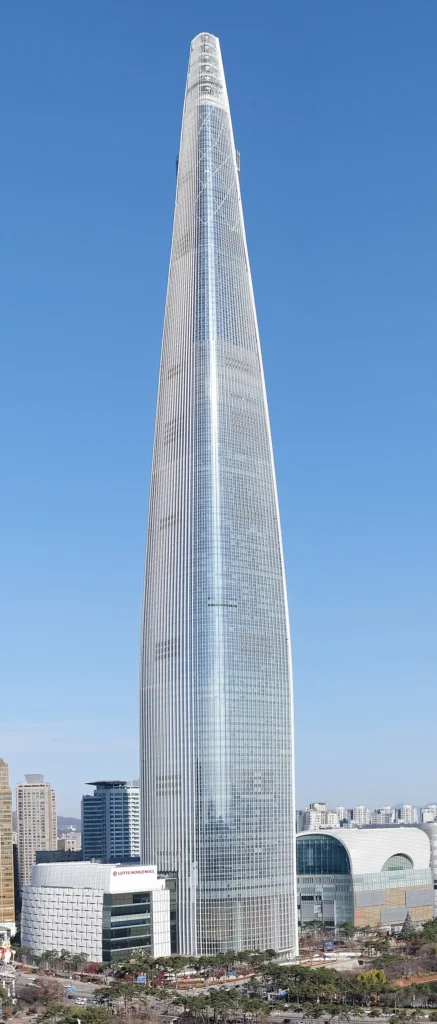
- Height: 554.5 meters (1,819 feet)
- Floors: 123 (+6 below ground)
- Year Completed: 2017
- Significance: The Lotte World Tower is the tallest building in South Korea and among the tallest in the OECD. It combines retail, office space, residences, and entertainment facilities, including an observation deck offering breathtaking views of Seoul.
7. One World Trade Center – New York City, United States
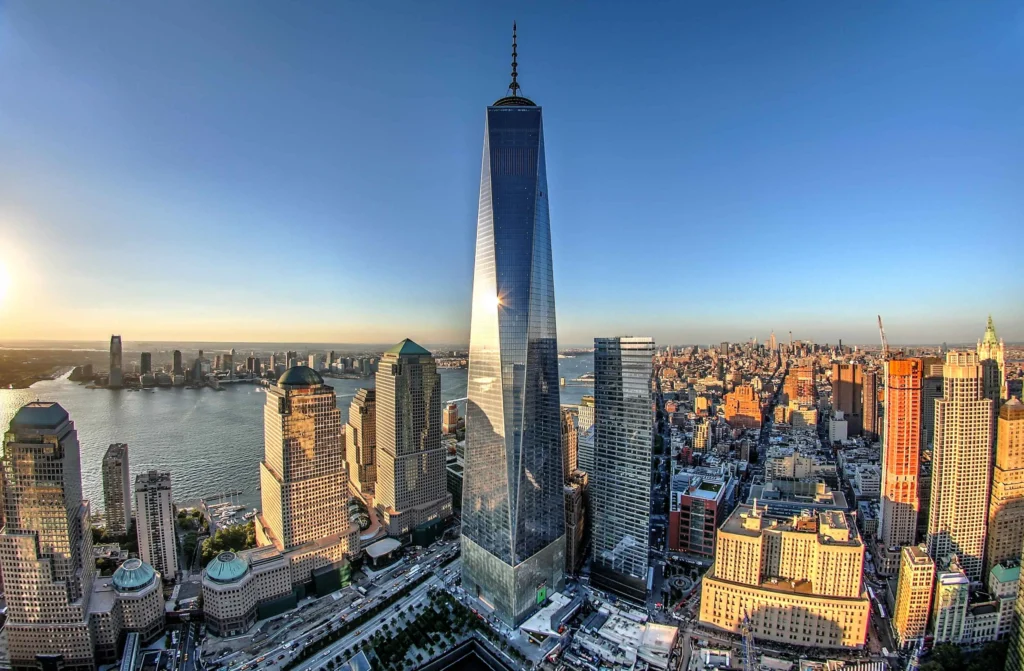
- Height: 541.3 meters (1,776 feet)
- Floors: 94 (+5 below ground)
- Year Completed: 2014
- Significance: Known as the Freedom Tower, this building commemorates resilience and rebirth after the events of 9/11. It is the tallest building in the Western Hemisphere, featuring advanced security systems and sustainable design.
8. Guangzhou CTF Finance Centre – Guangzhou, China
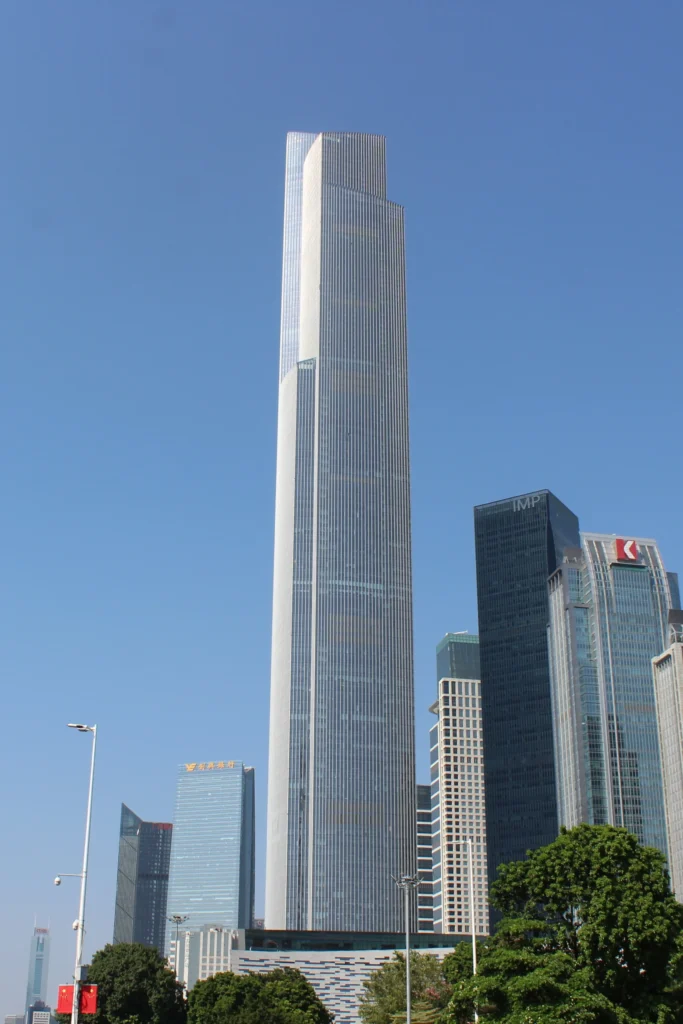
- Height: 530 meters (1,740 feet)
- Floors: 111 (+5 below ground)
- Year Completed: 2016
- Significance: This skyscraper stands as a financial hub in Guangzhou. Its advanced elevators are among the fastest in the world, symbolizing the rapid pace of development in modern China.
9. Tianjin CTF Finance Centre – Tianjin, China
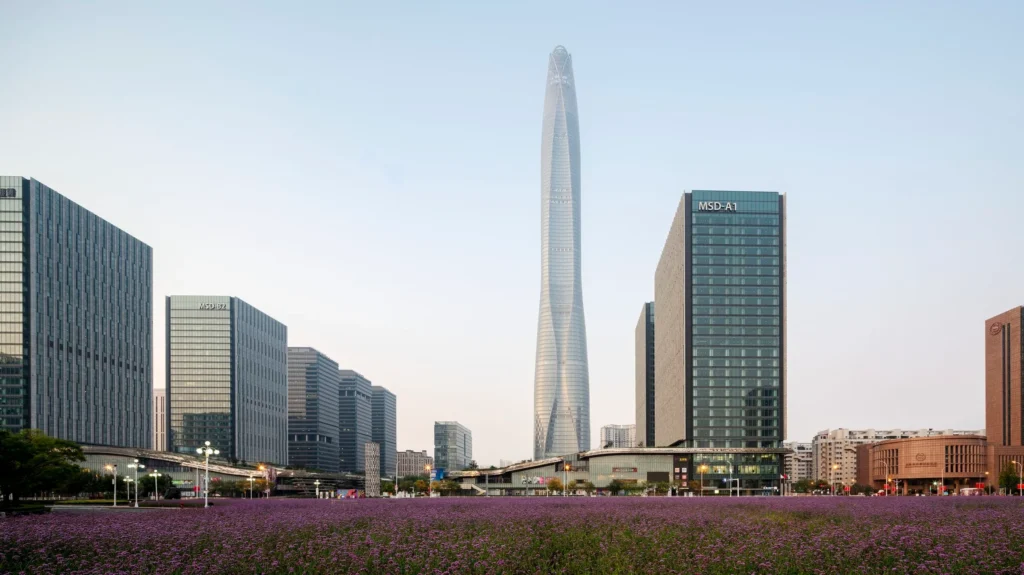
- Height: 530 meters (1,740 feet)
- Floors: 97 (+4 below ground)
- Year Completed: 2019
- Significance: With fewer than 100 floors, this is the tallest building of its kind. Its innovative structure ensures durability and efficiency, making it a standout in Tianjin’s skyline.
10. CITIC Tower – Beijing, China
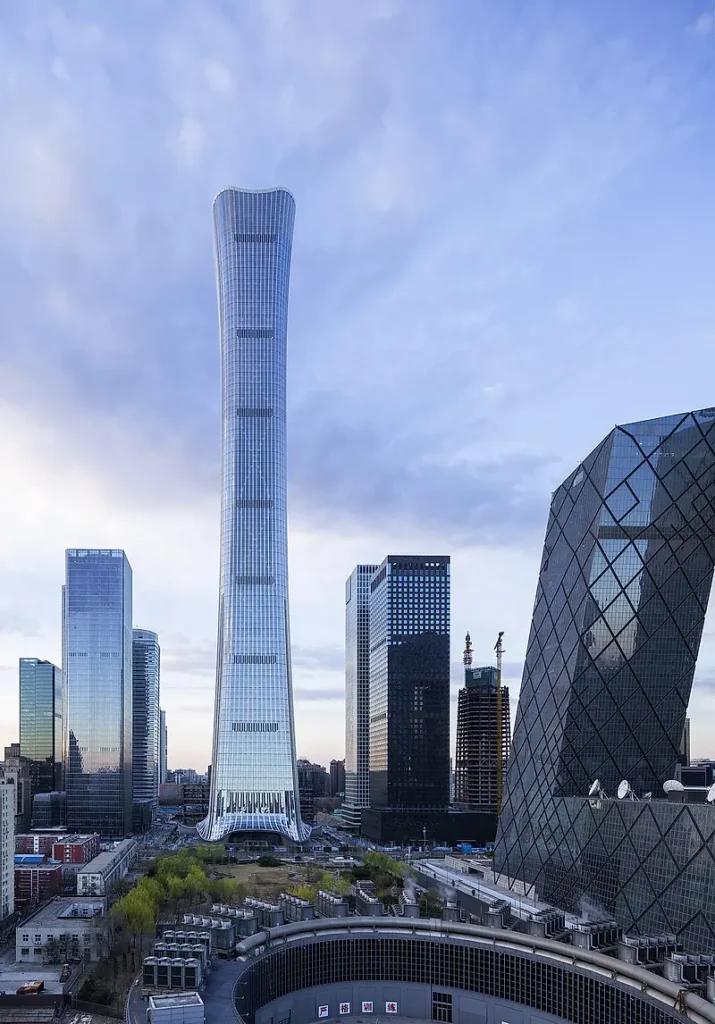
- Height: 527.7 meters (1,731 feet)
- Floors: 109 (+8 below ground)
- Year Completed: 2018
- Significance: Also known as “China Zun,” this tower is inspired by a traditional Chinese wine vessel. It reflects Beijing’s blend of tradition and modernity, housing offices, luxury apartments, and retail spaces.
Conclusion
The world’s tallest buildings are not just architectural achievements but also symbols of ambition, innovation, and culture. Each structure tells a unique story, representing the aspirations of its nation and the ingenuity of modern engineering. As cities continue to grow vertically, these skyscrapers inspire awe and push the boundaries of what’s possible in urban development.






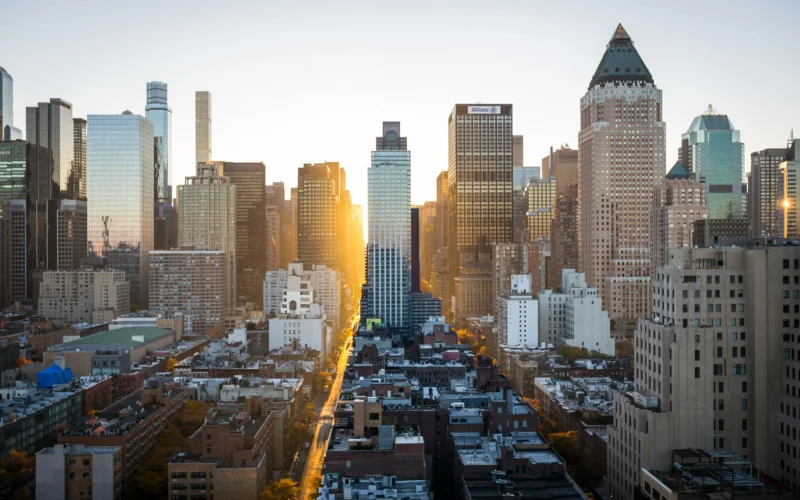


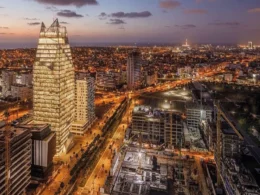
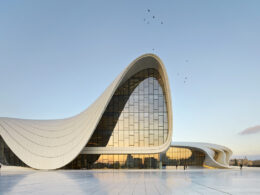


Comments 2